The Bear's Necessities: Grief, Genius & Our Stories Of Self
This is #CineFile, where our critic Rahul Desai goes beyond the obvious takes, to dissect movies and shows that are in the news. Today: The Bear's Season 2.
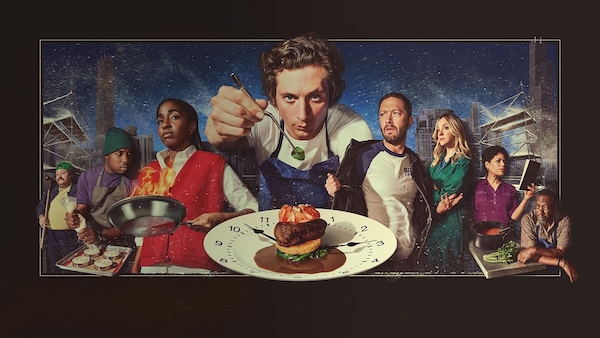
Last Updated: 01.28 PM, Jul 09, 2023
This column was originally published as part of our newsletter Stream Of Consciousness on July 9, 2023. Subscribe here. (We're awesome about not spamming your inbox!)
***
THE FIRST SEASON of The Bear ended with Carmen Berzatto, the show’s frenetic young protagonist, shutting down the family sandwich shop — and announcing a new restaurant. The sandwich shop was called The Beef, a term that reflects the raw grievances in a kitchen awash with unprocessed grief. Carmy looks like a man who has escaped and returned at once; home is as much a vessel for his redemption as it is a refuge from the crushing pressures of elite-chef life. He also looks like a central character who knows he’s the central character. Carmy is a sullen jerk because he subscribes to the notion that toxicity is the cornerstone of greatness; he seems to be both resentful of and addicted to the burden of shouldering a shapeless narrative.
The fine-dining restaurant he announces is going to be called The Bear, a name that reflects the power of grief in a kitchen driven by both aggression and kindness. In Season 2, we see the making of this restaurant from scratch: the renovation, permits, the hiring, deadlines, financials and the hellish logistics of a post-pandemic Chicago. But this time, Carmy is no longer the protagonist. He is a central character, not the central character. The season does not open with him and does not close with him.
For the most part, Carmy is okay with sharing the spoils and not bear-ing the brunt of the narrative. The team comes into focus. The first scene of the season shows aspiring pastry chef Marcus and his routine — where he cares for his sick mother every morning before going to work — as if to say: Look Carmy, you’re not the only one who has it rough. The show’s most visually fertile episode features Marcus’ apprenticeship in Copenhagen; he works under a renowned pastry chef, lives on a boat and takes in the solitude of the artful Danish capital. Another episode is dedicated to the rousing transformation of Cousin Richie, who spends a week shining forks and decoding the healing halo of hospitality in ‘the world’s best restaurant’. Yet another episode features Sydney, Carmy’s sous-chef and platonic/business partner, tasting her way through Chicago to get inspired for the new menu. Tina, the veteran line cook, spends her time developing her skills at culinary school.
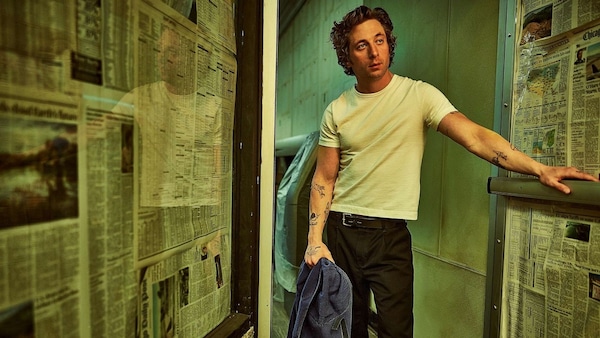
And one of the most remarkable episodes of television revolves around a Berzatto Christmas dinner five years ago, where we finally see the chaotic family behind the demons and daring of Carmy. He’s barely in this episode despite being in it, a mute observer of an implosion that eventually turns his trauma into a medium of nostalgia. We see why cooking becomes his way of silencing people rather than serving them. Food becomes his trigger, not his joy.
At first, you can sense that Carmy is trying to be a (better) person. Given that Season 2 is about building a new legacy, he isn’t quite sure of himself. It’s like watching a fish out of water. The sight of no kitchen (yet) — and a whole lot of entrepreneurial hustling — leaves him in an emotional limbo of sorts. His mind isn’t programmed to handle this part of the business. They have to open the place in record time to cut losses, but not much is in his hands. He struggles to not be in complete command of every situation; there’s a lot of waiting and time-biding required for the project to take off. His ambition doesn’t know where to go. At an early grief meeting, Carmy wonders if he should sample this thing called ‘fun’. He’s reluctant, though, because he fears that any kind of attachment might dilute his genius. But he needs something to do, other than worry about whether he might get a chance to display his genius again. When he isn’t creating dishes, Carmy is like an open wound. Maybe this is his chance to find a medicine.
When he bumps into a childhood flame, Claire, at a supermarket, the ultra-tight close-ups of their faces hint at incomplete chemistry. And potential companionship. But he gives her the wrong phone number because he doesn’t want a distraction, no matter how much he needs it. He doesn’t want to take his eyes off the prize, whatever the prize entails. Once Claire tracks him down, however, Carmy slowly allows himself to feel. He even accompanies Claire to a party, where he watches her console her heartbroken best friend. He loosens up. He learns that the jobs they do — she is finishing her residency to become a doctor — can be an extension of who they are; it doesn’t have to define them. His resistance breaks, they start dating, and he almost looks relieved that the show begins to follow the other members of his staff. By putting Sydney and his sister Sugar in charge of the ‘project,’ Carmy seems to be confronting a future rather than conceding to it. For once, he seems to be fine with the concept of collaborating — emotionally, financially, romantically — his way forward. Even the show’s banger needle drops go from R.E.M. to Taylor Swift.
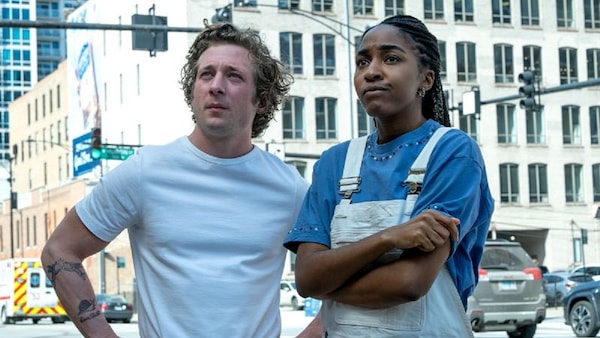
It’s not that he totally disappears. His shadow looms large over the other episodes. All the nurturing of Marcus, Richie and Tina happens because Carmy calls in favours for them. We get a sense of his past life in the cut-throat industry; they’re treading his path without fully realising it. To its credit, the show never spells it out. For instance, when Marcus’ mentor Luca recalls his own fresher days, he speaks of the time he realised he wasn’t the best — there was one colleague who was better than him. That was the day, Luca admits, the pressure melted away; he had less to lose, and he could open himself to a world beyond his kitchen and knives. Marcus doesn’t ask who the colleague is, and we suspect it’s Carmy, but only in Richie’s episode do we see a picture of Carmy and Luca together on the wall of the finest restaurant. The head chef of this place has a nice little chat with Richie, and reminds him that Carmy believes in him, contrary to Richie’s crisis of purpose. In other words, Carmy’s spirit wafts through the frames that don’t feature him. He’s earned enough respect — as both chef and character — to feel normal and secure about it.
But it’s Luca’s words that provide a warning bell. With great talent comes great responsibility — a responsibility that Carmy has long been conflicted about. Carmy feels like he’s obligated to suffer and sacrifice because he’s the best; his gift is a burden, and one that he lifted only to feel seen in his family. It’s a consequence of his pain, which is why he is desperate to stay committed to it. In the final episode, on opening night, Carmy collapses into the Season 1 version of himself. There’s a long shot of Sydney running the kitchen and reading out the orders coming in, with a blurry Carmy cooking in the background. He is not the foreground. The camera follows Richie and Fak and nearly everyone else, and it’s almost like Carmy notices this. He feels left out. The kitchen brings out the beast in him, the leader who thinks he’s too good for the dry functionality of teamwork. When he loses his cool with Sydney and tries to hijack the narrative again, the show locks him up — literally, in the walk-in freezer — as punishment. The crew pulls through without him, but he’s not happy. He is convinced that his ‘distractions’ are the reason he failed to shepherd the ship that night. He has a meltdown inside, yelling at himself for losing focus, in the process sabotaging his relationship with Claire as well as his bond with Richie. He’s snapped back to the sullen and bitter Carmie that almost burnt down The Beef in Season 1. It also feels like he’s a protagonist at war with the show for ‘sidelining’ him, and a central character who wants to reclaim the toxicity of creating after succumbing to the empathy of building.
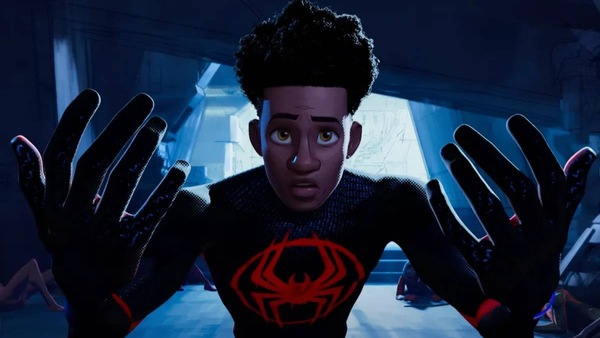
Carmy’s battle is best understood in the grammar of “canon events,” a theme elevated by the recent Spider-Man: Across the Spider-Verse. Just like superhero stories, chef stories are destined to hit certain beats. Any deviation from those beats threatens to "disrupt the multiverse" of these journeys. The suicide of Carmy’s brother Michael is a canon event. His dysfunctional childhood is one too. Carmy powering through his grief, having tunnel vision, being a demanding and abusive boss, and opening a successful fine-dining restaurant against all odds — this is an important canon event in his head. He is bound to do this, or a version of this, in every single universe. Even if Carmy were an actual bear, he would be a taskmaster bear that doesn’t believe in hibernation and has no social footprint to speak of. It’s written in the stars. But Season 2 of The Bear is the transitory phase between canons; it’s the calm between storms, the waiting room between destinations. So when Carmy softens, he senses that perhaps he is deviating from the path. Meeting Claire is not a canon event for him. Ceding control to Sydney and the others, not a canon event. In Spider-Man, it represents a chance to be original and forge a new superhero path. It’s risky to the overall fabric of the multiverse, but that’s the point: To reset the canon. To puncture the fatigue.
But in The Bear, this is a threat to Carmy’s belief — that you can’t succeed while being comfortable. He is both Miles Morales, the teen disruptor, and Miguel O’Hara, the leader of the Spider Society tasked with protecting their multiverse. When he locks himself in the walk-in freezer, he is convinced that he has ruptured his multiverse and strayed from his original narrative. He blames his love for Claire, his low-key kindness to everyone, and his audacity to have fun in such a serious environment. The yelling match with Cousin Richie is ugly, almost as if a pressure cooker bursts after months of manipulating the whistle. Carmy has, by then, had enough of being human and vulnerable. He snaps back to his path, reminding himself that canon events are the bricks of legacy. That being the best in his field is pointless if he’s going to succumb to ‘ordinary’ emotions. By the end, his panic attack ensures that he’s the protagonist again. His tantrum suggests that the kitchen is his trigger again.
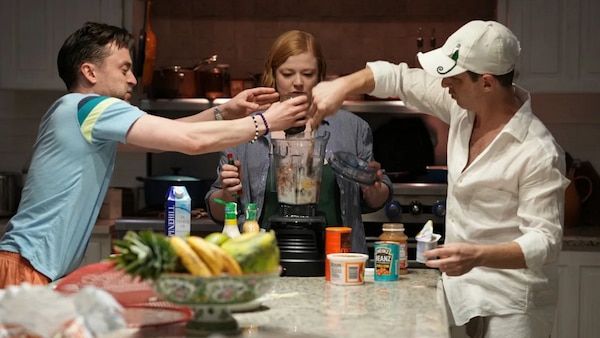
Carmy’s journey brings to mind the Roy siblings in the final season of Succession. It’s not just the similarity in themes, the visceral drama-weds-sitcom treatment — or even that the Roys’ own meltdown allowed an ‘outsider’ to take control of a family business in the dying moments of the season. For Kendall, Roman and Shiv, the canon event was to fight for the right to succeed their ruthless father, Logan Roy, as the CEO of Waystar Royco. It was inevitable. But Logan defied this canon by surviving in the very first episode of the series. He survived for more than three seasons, derailing the multiverse of the Roys — where at least one of them would’ve taken over and run the company into the ground — and deviating from the obvious family succession plan. By living, and letting the three grieve the demise of their entitlement, Logan changes the fate of the narrative. When he finally does die in the last season, it’s no longer a canon event — it comes out of the blue, shocking his adult kids into a sort of desperate melancholy that’s too fragile to withstand the force of parallel narratives. (The grief of losing a father who toyed with their sense of purpose — as opposed to losing him without any stakes in the first episode — turns them into vulnerable wrecks, and grown-up children who suddenly enjoy having food fights in their mother's kitchen).
One of the parallel narratives belongs to Tom, whose canon event — as an underdog marrying into a business empire — is scheming his way to the top. He turns the tables in his broken marriage and goes from prey to predator, while the Roy siblings are too busy pushing against the waves of their slow-burning deviations. While they get consumed by the destruction of their multiverse of privilege, Carmy snaps back before it's too late for him. In doing so, he retains his identity as a successor to his jaded family throne, and puts himself on a collision course with Sydney, an ambitious outsider who didn't appreciate Carmy's sudden desire to indulge in life. She has too much at stake, just like a younger Carmy once did, which is why her presence as the real protagonist only bolsters his dramatic breakup with Claire.
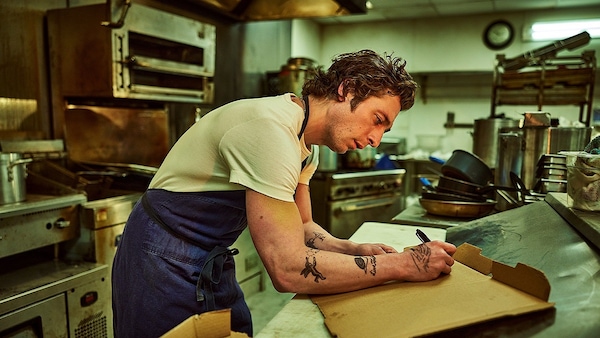
Perhaps it's fitting that two of the best television shows in recent memory are spiritually connected at the hip. Carmy's empathy helped his employees evolve, but their evolution also lulled him into an unusually centered existence. The final few minutes are an exquisite tragedy in terms of how The Bear is beaten into submission by its stubborn anti-hero. But it's also a resounding triumph, in terms of a character rediscovering tragedy as his fuel. Succession in this series is actually progression and regression at once — and for this little brilliant paradox alone, The Bear is the most fluid moral flashlight of our times. Imagine not knowing whether a person is winning or losing. And still caring. If that isn't a refreshing rupture of the long-form storytelling canon, I don't know what is.

 Premium
Premium